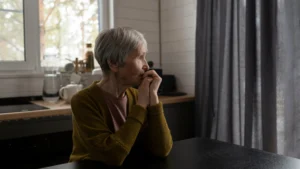If you’re in the early stages of retirement and feel like you can’t find your place yet, don’t panic, you’re not alone! Lots of us have a hard time adjusting to a different pace of life, which is why we’ve put some tips together to help.


1. Be aware of the emotional journey
The freedom in early retirement can feel like a holiday that lasts forever. However, this wears off over time and is followed by a slower lifestyle that can feel boring and lead to frustration. Boredom can make us lean into guilty pleasures and over indulging – be aware of these heightened emotions you feel and look at how they might be affecting your actions. Try to talk about your feelings with others. Chatting with people who have gone through the same motions might help to give you perspective.
2. Start a hobby or voluntary role that gives your purpose
Learning, creating and helping others gives a give meaning to life and can strengthen our relationship with others and our environment.
3. Organise your everyday life
Daily routines change completely after retirement, you can sleep in and take time to cook breakfast in the morning without rushing and binge on your favourite TV show. If you miss having a routine try experimenting with a weekly or monthly schedule with multiple activities. It is also worth developing a regular sleeping pattern because it has a good effect on both our body and mind.
4. Set goals
Prior to retirement a lot of our goals were focused on our careers but no-one said that you can’t have equally valuable goals in retirement. Goals with personal value that help improve well-being and allow us to learn are just as important. For example, read the 5 books you’ve been eyeing on the shelf for years or travel to a place you’ve never been to before.


5. Cherish your relationships
It is important to be part of a community of like-minded people. This can be a group of people who share the same faith, enjoy the same sport or even a group of friends who you just enjoy spending time with. In retirement, there is a significant risk of social isolation so it’s important to be part of a group who can encourage you to make positive life choices. Likewise, our family might benefit from our support if they need our help.
6. Rethink your spending
Even if you have been savings for retirement, you may still need to rethink your monthly expenses. Luckily there are lots of way to save money when you are over 60, such as price reductions on transport and VAT on certain items. Look around for good deals on necessary expenses like car insurance, internet and energy providers.


7. Exercise your mind
There are plenty of opportunities to work your mind on a daily basis and keep brain fog at bay. Find activities you enjoy doing, it could be crosswords, sodoku, reading, playing music or learning about a topic you’re interested in.
8. Connect with nature
Take time to enjoy being outdoors. You don’t have to go on long hikes, small walks in nature are just as good. If you live in a city, look for the nearest park or green area where you can connect with nature.
We experience changes in our social roles and lifestyles throughout our lives. Just like with other major changes in our lives before, it’s important to see the potential of this change and develop healthy habits in order to have a meaningful and happy life. By following these tips above we hope that you will follow the path to a happier retirement.








